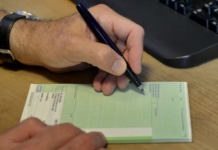On his website, Dr. Nardo details the hidden risks and bad science behind the growing practice of using atypical antipsychotics to augment antidepressant treatment for severe depression. The story of Atypical Antipsychotic Augmentation of Treatment Resistant Depression is a “prime example” “to illustrate how commercial interests have invaded medical practice.” “Besides the obvious dangers of the Metabolic Syndrome and Tardive Dyskinesia, these drugs don’t really do what they’re advertised to do – make the antidepressants work a lot better.”
-
I’m glad Dr. Nardo’s speaking out against this, and as you all know …
My concern regarding atypical antipsychotic augmentation of treatment resistant depression is that it is already medically known that combining the antidepressants and antipsychotics can cause anticholinergic toxidrome.
“Substances that may cause this toxidrome include the four ‘anti’s of antihistamines, antipsychotics, antidepressants, and antiparkinsonian drugs[3] as well as atropine, benztropine, datura, and scopolamine.”
And especially given the central symptoms of anticholinergic intoxication syndrome:
“Central symptoms may include memory loss, disorientation, incoherence, hallucinations, psychosis, delirium, hyperactivity, twitching or jerking movements, stereotypy, and seizures.”
Are almost identical to the positive symptoms of “schizophrenia.” It’s likely this antipsychotic / antidepressant induced toxidrome could frequently be misdiagnosed. Especially given the fact it’s not even mentioned in the DSM as a possible cause of “psychosis,” and even psychiatrists can suffer from the problem of “out of sight, out of mind.”














